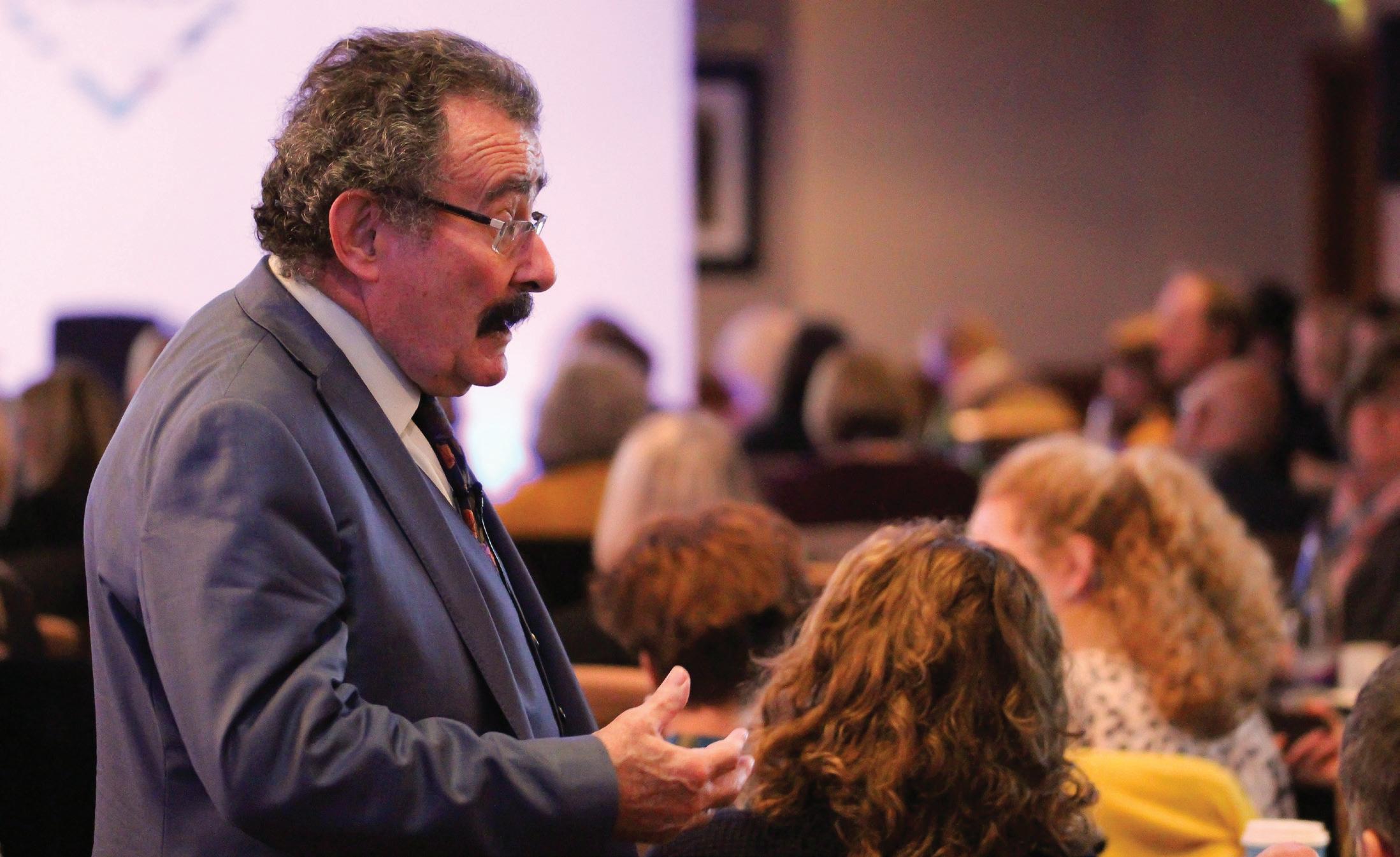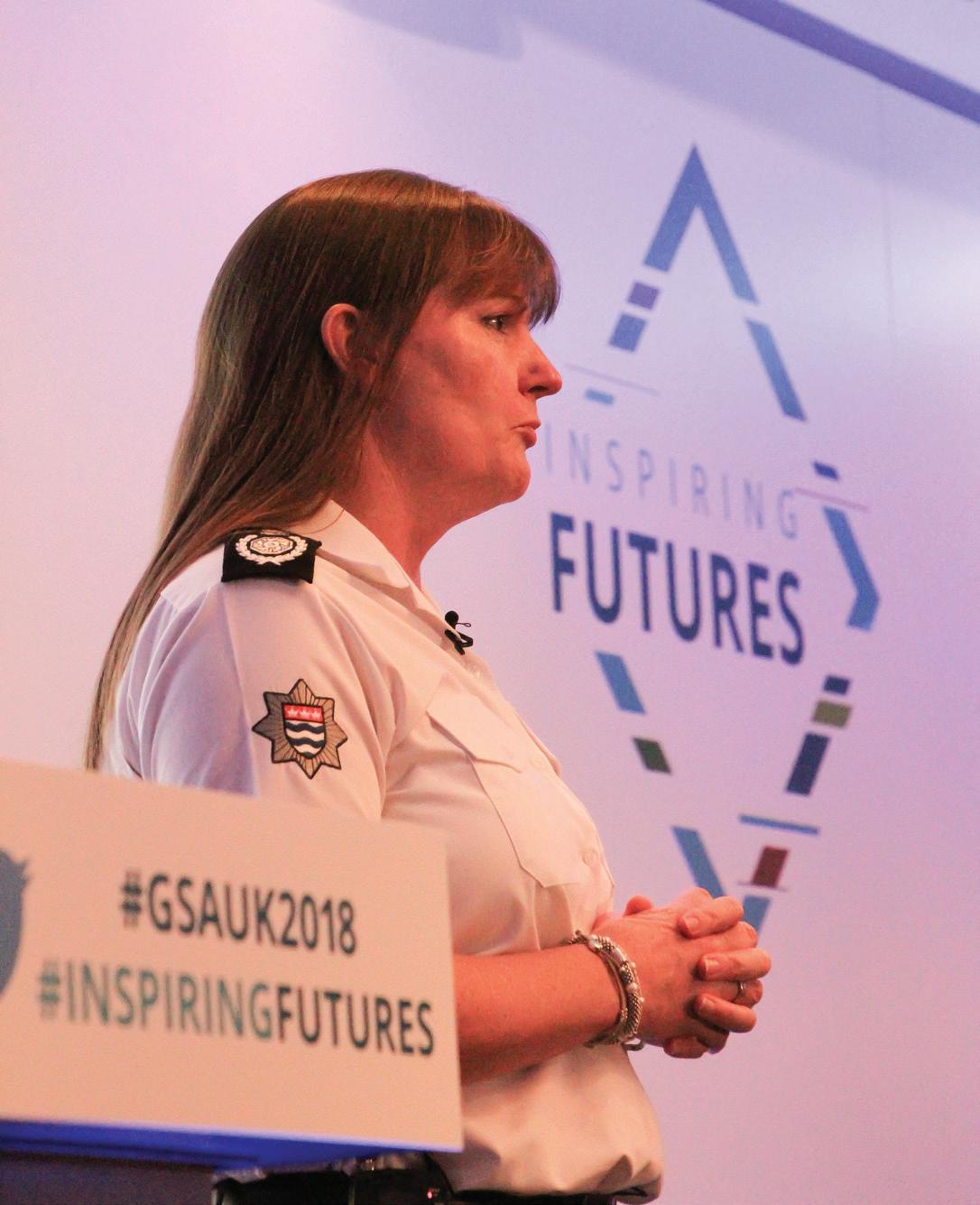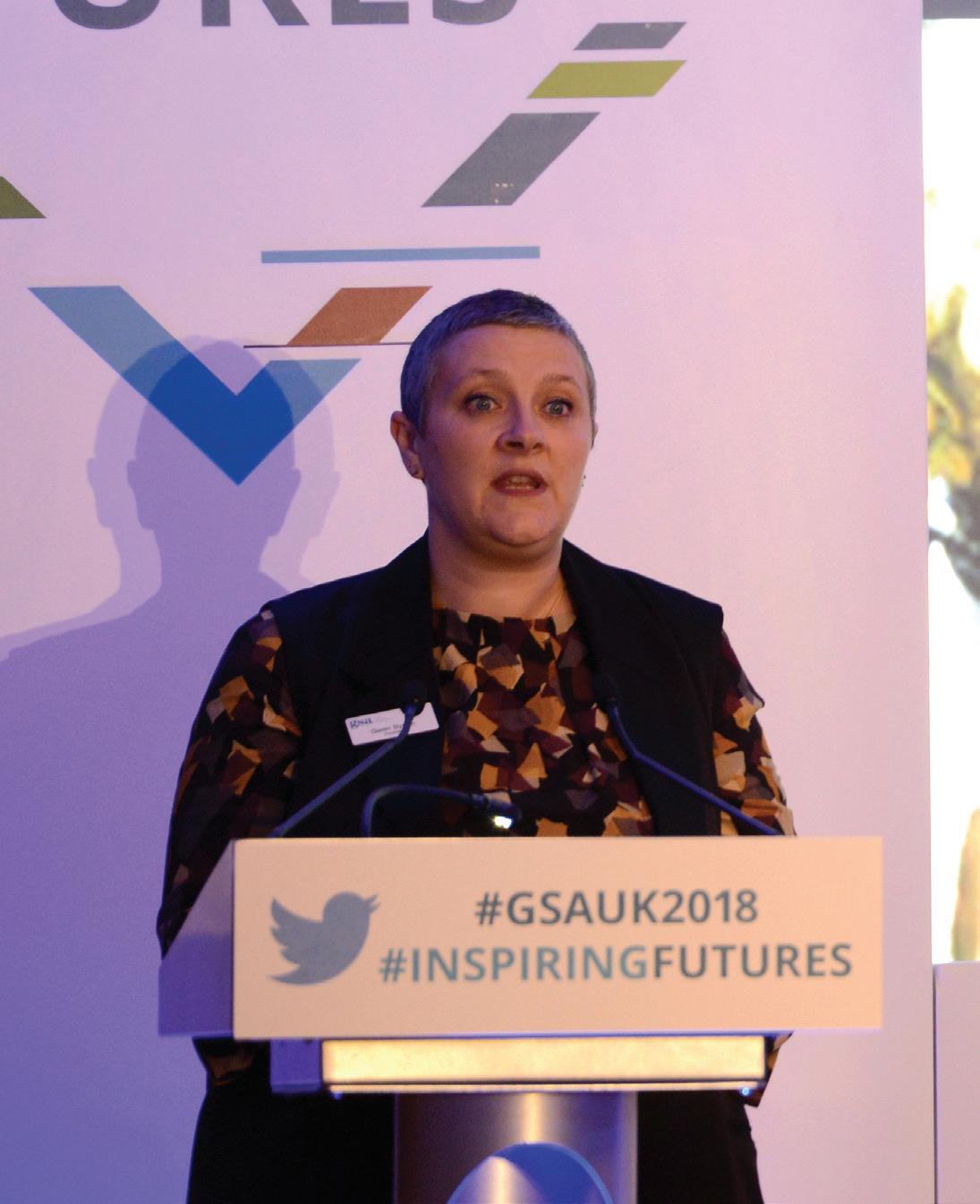
5 minute read
Inspiring Futures, Helen Jeys
Inspiring Futures Helen Jeys celebrates the GSA Conference of 2018
The life of a Head is a busy one and, often, it is difficult – for many reasons – to leave school for a few days. However, I never feel any shred of guilt for going to the annual GSA Heads’ Conference. Not only do I come away refreshed and re-energised but I know that the speakers will fill me with ideas that I will want to implement in my own school.
The 2018 conference was no different. The theme, this year, was #inspiringfutures; how can we prepare our students for a world which we neither know nor can predict? In her opening speech, GSA President, Gwen Byrom, spoke of the roles we have in independent schools to transform the life chances of children through Bursaries and our duty to undermine the stereotypes often associated with our sector; to encourage those poor families to see an independent school as a viable option for their children and, thus, to really contribute to social mobility. She also spoke about an issue very pertinent to the GSA sector: that of ensuring that we expose young girls – particularly those of a primary age – to a diversity of role models, both male and female, so that girls’ career aspirations are not, by the age of 7, gender determined.
We enjoyed a fabulous presentation by Professor Robert Winston who focused on the necessity of appreciating the ethics and humanity of science. He drew out wonderful links between Professor Robert Winston
music and mathematics, the aesthetic beauty of the Tristan Chord and the natural affinity between the mind and music; all crucial to his argument that there is far more to science than an objective appreciation of Biology. Indeed, Winston argued, it is only if we understand ethics and humanity and encourage scientific literacy that we can impact the future progress of science in a meaningful way.
Grace Barrett from the Self-Esteem Team gave a round-table presentation on the necessity of a cultural shift in schools to ensure positive mental health. She stressed the importance of treating mental health in the same way as our own physical health and encouraging students to be as open about their emotions as they are about physical injury. Mental health is an important area for all of us, in every school, and any strategy to help children and young people manage their mental health – both now and in the future - is one that needs serious consideration.
The conference then encouraged us to consider inspiring the futures of our older students within the landscape of universities and apprenticeships. Sir Anthony Seldon, ViceChancellor of the University of Buckingham was – as always – an inspirational speaker. Seldon has always been a motivating force behind my own educational philosophy. From his days leading Wellington College and the introduction of lessons
in Eudaimonia, his brave and, in those days, revolutionary approach to mindfulness and wellbeing has had a lasting impact both on me as an individual and the schools in which I have taught. I always, therefore, anticipate any kind of presentation from Seldon as a huge treat. With his characteristic dry wit and an introduction to his presentation via a spot of mindfulness, he treated us to his view of the future challenges facing universities. His view that it is incumbent upon universities not only to teach academic courses but to do so alongside other life skills was fascinating. Data and technological literacy, human literacy, holistic thinking, entrepreneurship and critical thinking were on his list of necessary elements of any degree course but he did make a comment about how sad it was that, in this day and age, we needed to teach students to be able to discern the nature of truth; a feature of our age to be sure. Certainly, his view that we should consider bi-lateral degrees, two-year degree courses and professional universities left us all with real food for thought. Seldon never disappoints!
The second day of conference continued to inspire. After a moving outline of how one can try to address the needs of the bereaved child, presented by Julia Samuel MBE, we heard a fantastic presentation by Professor Sonia Blandford, accompanied by Lord Theodore Agnew, on how independent schools can support social mobility. This issue has never been more important for us as independent schools and Blandford navigated us through the impact of effective partnerships that build on all children’s core strengths. Her work on the actual outcomes of such partnerships is incredibly important as is her focus on ‘Counterpoint’; a strategy which presents practical ways forward in this vital area. The potential of international links and partnerships with African schools was also demonstrated in the work of Tom Ilube who is doing amazing work with his African Science Academy in Ghana, describing those gifted Dany Cotton


African girls who focus their energies on achieving stunning A level results in Maths and Physics in just twelve months.
A real highlight of the conference, for me, was a presentation by Dany Cotton, the Commissioner of the London Fire Brigade. She talked, with eloquence and passion, about undermining the stereotypes of firefighting and her attempt, for instance, to rename ‘Fireman Sam’ as ‘Firefighter Sam’ as part of her drive to encourage women into the profession. The social media abuse she received on such a drive was shocking, as has the horrific abuse she and her colleagues have received as a result of contributions to the public inquiry on the Grenfell Tower disaster. She was refreshingly open about her own mental health and the PTSD she and her colleagues experienced as a result of this devastating tragedy. The message of the conference was about inspiring futures: Cotton did this in spades – not only in her theme of undermining stereotypes and encouraging girls to know that they could succeed in all areas - but also in her frank and open examination of mental health issues and the importance of self-compassion and seeking help after experiencing tragedy.
As anticipated, the GSA Heads’ Conference did not disappoint. Not only does it provide a fantastic opportunity to network with other Heads and friends (there is such a wonderfully collegiate atmosphere) but it also provides one with space to listen, to think and to plan; time which is in very short supply when in school. We bade farewell to our President, Gwen Byrom, and wished her luck with her new school in Thailand before welcoming Sue Hincks, our new GSA President, and a fellow North West Head. Sue is, I know, already planning for the 2019 conference theme of our sector’s 2020 vision. Future food for thought indeed!
Helen Jeys is the Headmistress of Alderley Edge School for Girls Gwen Byrom










